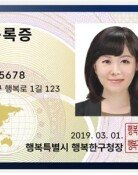A Society that Spares Greetings
A police officer said that the expression sorry seemed to be very hard to say, adding that people often fight over small things such as saying sorry and came to the police station.
There are many people who point out that it is rare to hear basic words like sorry or thank you in Korean society. There is a Korean saying, A soft answer turns away wrath, which represents the importance of nice words. But such a saying already seems irrelevant in the hectic life of modern society.
Why is that? Seoul National University Sociology professor Han Sang-jin pointed out that the extremely low level of maturity of peoples mindsets, which lacks consideration for others, is associated with a social culture in which people do not exchange greetings.
Professor Han said that due to the rushing modernization, referring to a mad dash to accomplish ones goals such as attaining social success, Korean society is seriously lacking in consideration of other people.
Lee Hwan-ho, a director of the Korean office of the Goodwill Cooperation Service Movement said, Greetings may seem trivial, but they can contribute to social unity, by playing the role of smoothing interpersonal relations.
Living in a social community requires consideration for others, and that in return requires basic manners. A greeting is a small, basic thing, but it creates warm hearts and recovers and maintains personal relationships.
A small change started last month at Mokdong apartment complex nine in Sinjeong-dong, Yangcheon-gu, Seoul. Representatives of the residents began a campaign for acts of kindness to make friends with neighbors as a major agenda of this year, and started the say hello movement.
The atmosphere in the apartment complex changed noticeably, after those representatives, executives of the womens club, and guards began the say hello campaign at every corner of the apartment complex in the early morning for two weeks beginning at the end of December, and attached posters reading I say hello first in the elevators.
Kim (43), a resident of the apartment, says that thanks to such a movement, he feels happy while going to work in the morning. After pleasantly exchanging greetings with several residents on the way to the subway station, he feels good all day at his workplace.
Coalition for Transportation Culture, a Busan-based organization, has been leading a movement to exchange greetings among bus drivers and passengers since 2002. The organization attached stickers reading Greeting is beautiful inside some 2,700 local buses to promote the campaign to the public, while giving a greeting training to bus drivers.
Choo Young-gon, head of the organization, said, Although they didnt say anything to each other initially, drivers and passengers are now exchanging hellos, sometimes even holding a small dialogue, adding, Complaints of bus drivers unkind attitudes decreased by almost 40 percent.
Yoido St. Marys Hospital in Yeongdeungpo-gu, Seoul has been continuing a campaign, under the catch phrase, I say hello first, with a bright smile and a pleasant voice since 2003. Words and phrases like hello, thank you, and have a nice day are commonplace in the hospital.
Kang Min-ja of the hospitals outpatient nursing team said, We started the campaign to be kinder to patients, and that enhanced relationships between staff members as well, adding, There seems to be no distinction between myself and others after we exchange kind greetings dozens of times a day.
Psychology professor Choi In-chul of Seoul National University pointed out that greeting others is a small step to create a mindset of a community of I am a member of a civil society, and that an atmosphere in which people value courtesy and manners should spread across society.
A mature society is made when members stick to the basics. Let us say a warm word of greeting to people around us today.
Yi-Young Cho Soo-Jung Shin lycho@donga.com crystal@donga.com






